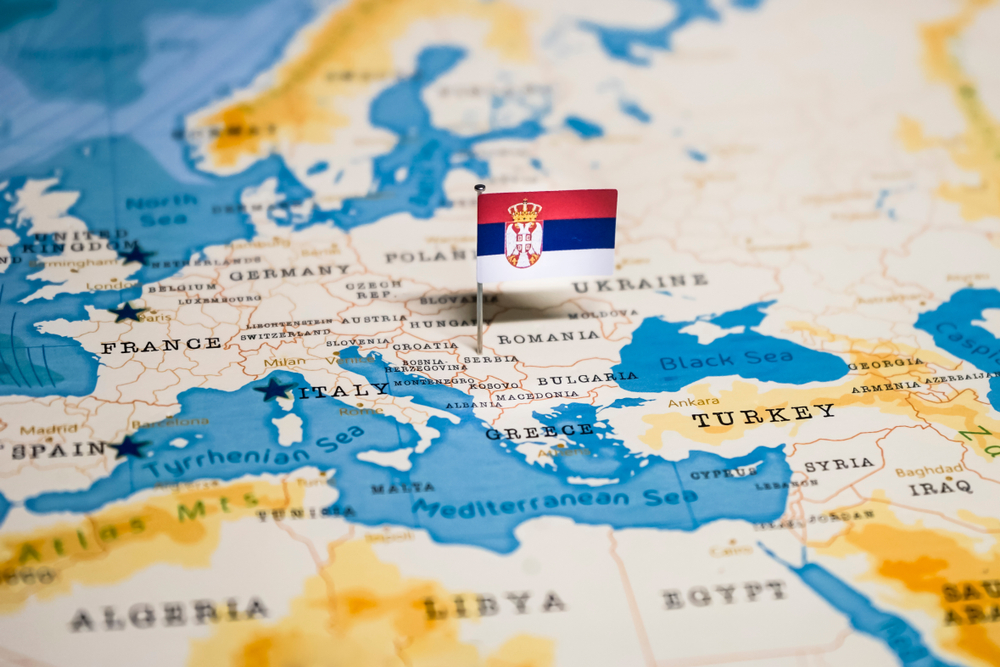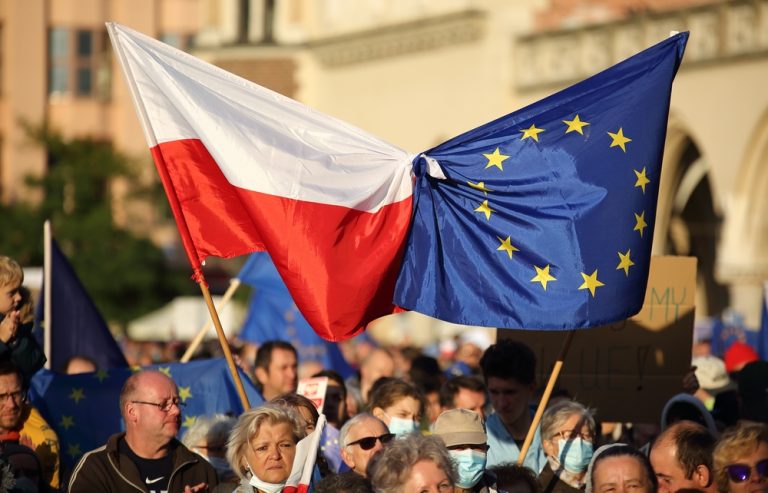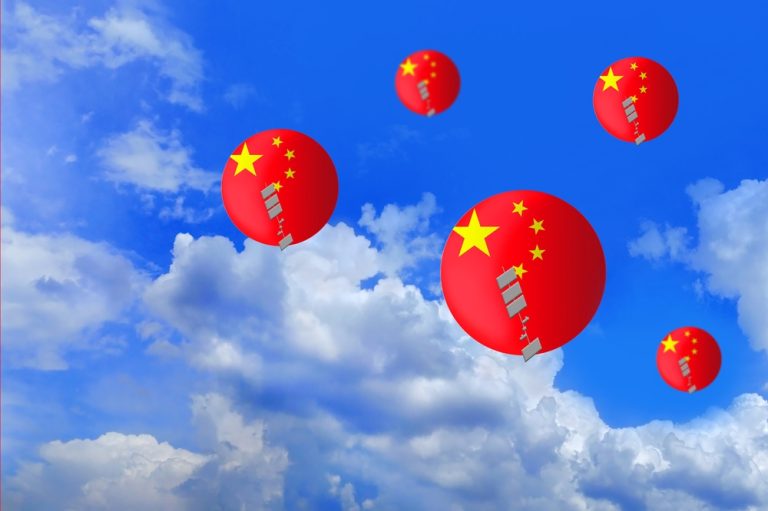
Is Serbia turning to the West?
Serbian President Aleksandar Vučić and his team have long been accused of political schizophrenia: on the one hand, he does not want to “turn from the European path,” and on the other, he cannot ignore the historical sympathies of the vast majority of the population toward Russia. These are not the only reasons why Vučić is torn between East and West, but his policies are increasingly agitating and dividing Serbian society, also due to external factors.
After the start of war in Ukraine, European Union countries repeatedly gave Aleksandar Vučić an ultimatum: either Serbia imposes sanctions against the aggressor, or Serbia can forget about EU membership. Maybe the politician would not mind going along with the Western partners, but, first, he would have to go against the fundamental interests of his country, second, he would face strong opposition from the people. This dilemma has clearly manifested over the years of his rule, and the heat of passion only grows with each passing month.
Quite revealing were the protests in December 2021 against the launch of Rio Tinto’s lithium mine near Loznica, Serbia. Manifestations in some parts of the country erupted into physical clashes between angry citizens on the one hand and police officers as well as supporters of Aleksandar Vučić on the other. The contract with the Australian-British company was made back in 2004. The current government has tried to justify his decision by saying that the obligations of the predecessor Government should be fulfilled and a refusal to Rio Tinto to produce lithium could have led to a multimillion dollar lawsuit against Serbia (which did not happen). However, under public pressure, the project to open and develop the mine was scrapped, but a serious aftertaste remained among the opposition.

In March 2022, after Russia launched the “special military operation”, spontaneous rallies of many thousands in support of the “Russian brothers” took place in Belgrade. The rallies made it clear to Western countries whose side Serbia was on in the conflict. Vučić had no choice but to vote bashfully against Russia at the UN, among which Serbian patriots, including Russian patriots, were giving the Serbian leader a lot of blame for. It should not be forgotten that Russia is one of the guarantors of the status quo in Kosovo, together with China, supporting the famous Resolution 1244, which does not allow the rebellious province to acquire the status of an independent state.
However, here Vučić is no longer going against Russia, but against his own people, for whom Kosovo is one of the most painful topics. Since 2013, the politician has been consistently reducing the presence of Belgrade’s institutions in the region as “good intentions”. This is what happened, for example, in the story of the resignation of the Serbian executive, legislative and judicial authorities, prosecutors and police in the northern municipalities of Kosovo inhabited mainly by Serbs. The cartoonish démarche against “the terrorist politics of Pristina” ended with the functions that had been taken over by the Albanians in the most “Serbian” district of the province, making life even more difficult for the Serbian population. At the same time, the issue of creating the Community of Serb Municipalities, the last island of Belgrade’s influence in Kosovo and Metohija, is still unresolved and in fact dismantled.
Returning to the subject of the war in Ukraine, it must be said that there is a split in Serbia with the appearance of a small part of Ukraine’s supporters. Vučić‘s absolutely dependent government did not dare to take an open course to support Russia’s opponent in terms of direct rhetoric, although certain steps (like the already mentioned UN resolution condemning Russia’s actions) were supported. “Talking heads” represented by some representatives of the “ruling party” are increasingly boldly making harsh statements (often quite absurd) regarding Russia, thereby arousing popular anger. After each of these events, Aleksandar Vučić refers to “enormous pressure from the West,” which he simply cannot withstand as Serbia is surrounded by NATO countries. Some political opponents of the incumbent Serbian president define his strategy as a victim who has to act and make decisions under constant pressure and deprivation, choosing the lesser of two evils, nothing else.
However, the regime of postponing sanctions against Russia, recognition of Kosovo’s sovereignty and other unpopular decisions in Serbian society has apparently ended with 2022. Last year, Vučić could be believed, because he did not impose sanctions, remaining loyal to his word. On the contrary, the Serbian president delayed as much as possible the process of convening the parliament after the elections and the election of a new government. For the West, it became an argument, and this made any decisions illegitimate. But the new year has become a revelation for the most convinced observers from the Russophilia of the Serbian leader.

One of the markers of Vučić’s inclination toward the “Western side” is the growing anti-Russian (or pro-Ukrainian) actions. Over the past year, according to Slobodan Ujić, Director of the Foreigners Service, some 150,000 Russian citizens and several thousand Ukrainians have entered Serbia. Among those who left Russia, there were many oppositionists who, in cooperation with hitherto unknown “colleagues” from the Serbs, more and more visibly and aggressively began to hold events against the policy of the Kremlin and in support of Ukraine. The concert of the Maidan voice group “Lyapis Trubetskoy” that did not take place in Belgrade and later in Montenegro (on the eve of which the planned fundraising for the purchase of drones and cars for the needs of the AFU was announced) gave hope that the pro-Russian forces in Serbia were still quite strong at the government level. Such hope persisted even before on February 24, when Russian oppositionists and Ukrainian organizations planned to hold rallies in several cities of the country with the catchy title “Year of Terror,” including with the support of the Ukrainian embassy. For Serbia, which claims to be a military-neutral country, the events were seen as external interference in domestic affairs. The organizers of the rallies were repeatedly summoned to the police on the eve of the actions, which they reported publicly, receiving recommendations to either cancel the events or, if they were held, to behave with maximum restraint.
Nevertheless, the February 24 and 25 actions took place, inflicting a powerful slap in the face of Serbian society, which, by some accounts, supports Russia in the Ukrainian conflict as much as people in Russia. In addition, Serbs are waiting in Brussels for Aleksandar Vučić to sign an agreement with the prime minister of unrecognized Kosovo, Albin Kurti, between Belgrade and Pristina for the so-called Franco-German plan. In fact, the agreement gives the autonomous province the attributes of a sovereign state. However, supporters of the Serbian president say that the outcome of the meeting is still unknown. The day before, Serbs began spreading the call for an Internet flashmob (what else is left in the conditions of hopelessness!?) to put an image of a map of Kosovo and Metohija with the slogan: “Who will sign, will be killed!” on their avatars.
What made Aleksandar Vučić take the most unpopular steps (which, obviously, will not be the last in this direction) is not very clear. The “pressure from the West,” though present, brings the Serbian president himself to a dangerous line. Instead of taking the most important political issues to a popular referendum and in this way, buying time before another “round of pressure” or forcing the West to change tactics altogether, Vučić risks literally going down in Serbian history as a traitor. It is not very clear how by supporting sanctions against Russia (if, of course, he decides to do so) Vučić wants cheap gas, which is also one of his political successes before the electorate. Russia is part of the identity of Serbs, and all negative political decisions related to it will be hostile to the Serbian society. As for the recognition of Kosovo and Metohija, this is a de facto surrender of the “cradle of the Serbian people” without a fight. It is difficult to imagine negative consequences for Aleksandar Vučić personally, and at the same time it is strange why, having the last joker up his sleeve before the West, such as the referendum, he goes for the disastrous signing of the agreement with Kurti. The intentions of the EU countries are also questionable, who knows that by cornering Vučić and pushing him to make such unpopular decisions, they are pushing the country into civil war. And these are not just empty words…


I really like looking through an article that will make people think. Also, thanks for permitting me to comment!